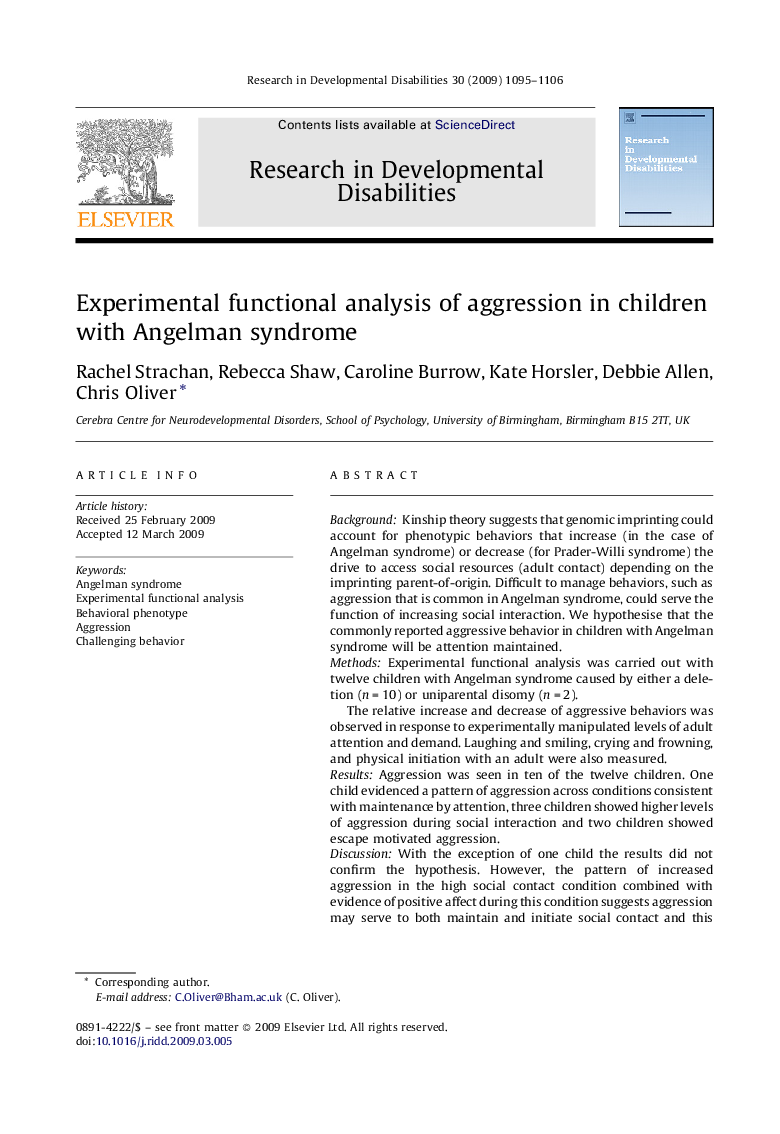| Article ID | Journal | Published Year | Pages | File Type |
|---|---|---|---|---|
| 372288 | Research in Developmental Disabilities | 2009 | 12 Pages |
BackgroundKinship theory suggests that genomic imprinting could account for phenotypic behaviors that increase (in the case of Angelman syndrome) or decrease (for Prader-Willi syndrome) the drive to access social resources (adult contact) depending on the imprinting parent-of-origin. Difficult to manage behaviors, such as aggression that is common in Angelman syndrome, could serve the function of increasing social interaction. We hypothesise that the commonly reported aggressive behavior in children with Angelman syndrome will be attention maintained.MethodsExperimental functional analysis was carried out with twelve children with Angelman syndrome caused by either a deletion (n = 10) or uniparental disomy (n = 2).The relative increase and decrease of aggressive behaviors was observed in response to experimentally manipulated levels of adult attention and demand. Laughing and smiling, crying and frowning, and physical initiation with an adult were also measured.ResultsAggression was seen in ten of the twelve children. One child evidenced a pattern of aggression across conditions consistent with maintenance by attention, three children showed higher levels of aggression during social interaction and two children showed escape motivated aggression.DiscussionWith the exception of one child the results did not confirm the hypothesis. However, the pattern of increased aggression in the high social contact condition combined with evidence of positive affect during this condition suggests aggression may serve to both maintain and initiate social contact and this interpretation is consistent with previous research. The negative results may also have been influenced by the age of the children and the low levels of observed aggression.
